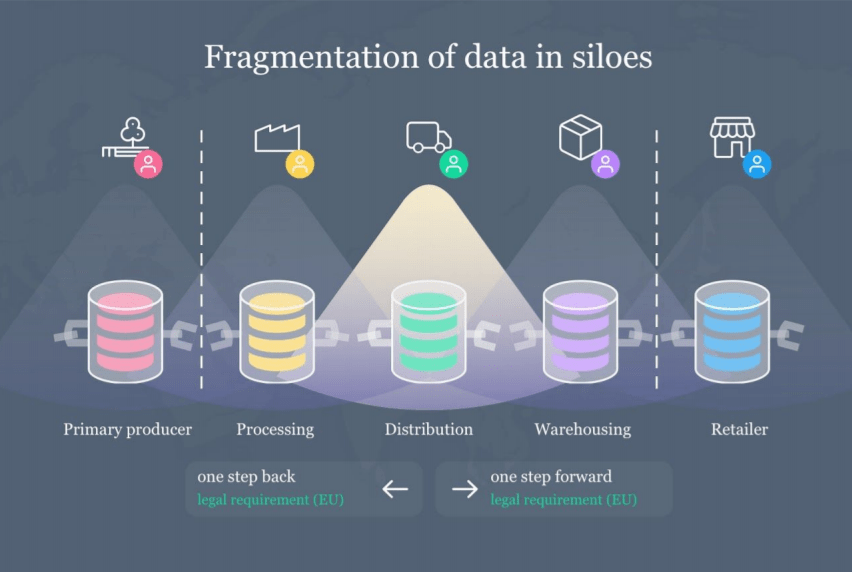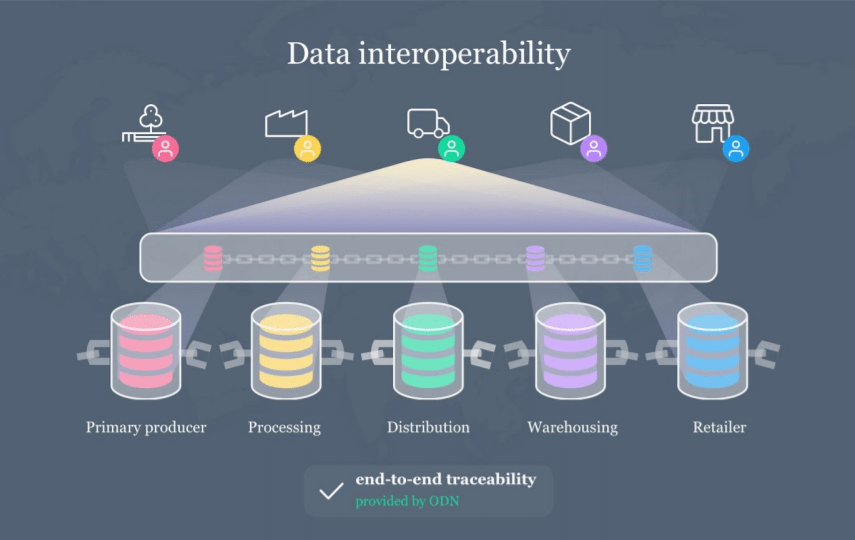Taking a step back to look at what blockchain technology might do for our civilization, we can see that history is about to take a turn towards the truth. It’s often said that “winners write the history books,” but with a decentralized and immutable ledger accessible worldwide, objectively recording history has officially become possible.
The implications of this are massive, and since blockchains are the foundation of cryptocurrencies, the potential for them to weave through entire industries is very real.
Narrowing our focus into a specific industry will paint a more detailed picture of “the blockchain effect,” and by focusing on the supply chain industry, we can see how widespread the impact could be in the not-so-distant future.
An Outdated Supply Chain Model
Since the supply chain industry applies to virtually every business model and niche out there, consider the supply chains that are most relevant to your health. There’s a few that come to mind, but perhaps the most relevant to our daily lives are the ones that put food on our tables.
Every day, millions of individuals put their faith in the grocers and supermarkets they buy from. A majority of the time, there’s nothing to worry about — depending on how important organically produced food is to you. Point being, people usually don’t get sick, but outbreaks still happen frequently enough that investigations are launched multiple times per year.
When an outbreak occurs, the current investigative process includes determining the outbreak’s date and location, the number of ill people, their symptoms, what was contaminated, what the contaminant was, and where the food was prepared. While the current system allows investigators to determine enough information to announce a recall to prevent further illness, their data is limited.
In addition to this limited data, there isn’t an overarching incentive for entire supply chains to share their information freely, creating conditions for fraudulent behavior. This is particularly relevant when dealing with agriculture or forensic evidence. By combining smart sensors with an immutable, decentralized ledger, clients will have secure access to incredibly detailed information, allowing them to fine-tune their systems further than ever before.
OriginTrail Data Is Precise
The current system has safety measures within it, and when an outbreak occurs regardless of those measures, an investigation begins.
It’s unsure whether or not this game of cat-and-mouse will ever end, but OriginTrail is currently working on creating a more transparent supply chain, allowing investigators to more effectively target where the safety measures are lacking.
Using the food industry as an example, consider a “high-risk” produce — sprouts, which need to be grown in warm, humid conditions and thus are a threat for harboring bacteria.
They’re grown in a field, harvested, processed, transported, prepared, and sold. The current system monitors the systems and industries handling the sprouts, but they don’t keep an eye on the individual packages during their journey to your plate.
Imagine that every package of sprouts contained a smart sensor that’s integrated into a blockchain-based supply chain management system. The smart sensor would track timelines, sense temperature and light changes, and verify information provided every step of the way.
If there happens to be an outbreak, investigators will have a wealth of information neatly stored in a trusted database. Theoretically, if every package is being tracked, an individual could receive an email suggesting their sprouts need to be thrown away and refunded.
This “smart safety” feature applies to vegetables, poultry, and dairy, and can even be used to authenticate the originality of any product. This is especially relevant when determining the source of your food, or whether your wine is counterfeit, for example.
Analyzing the food industry serves as an example of how blockchain-based tracking mechanisms can improve the lives of millions, and potentially save lives.
Looking at the bigger picture — the supply chain industry — we’ll be able to see how OriginTrail can make industry-wide improvements on a global scale.
Supply Chain Interoperability
Attaching smart sensors to products can help improve the supply chain as a whole.
The current system is set up in a centralized manner, producing what’s known as “data silos,” which prevents the contained data from being freely accessed or used.
With the increasing complexity of the supply chain industry due to globalization, information is unevenly distributed among supply chain participants. This is especially important for stakeholders of a particular chain, but also for the end consumers and environment as well.
It’s difficult to hold producers accountable to sustainable, honest practices if their information is stored in a centralized silo. Since each actor is only responsible for recording the information within their “link” of the supply chain, the current process leads to what’s known as a “one step back, one step forward” situation.

After working with their supply chain clients for more than five years, OriginTrail has identified to key areas that lead to the impediment of data collection and distribution, and they’ve outlined both in their whitepaper as such:
- Data is fragmented.
- There is no suitable decentralized solution for supply chain data.

OriginTrail’s solution to the problems outlined above was also broken into two main parts in their whitepaper:
- Seamless and automatic data connection and interoperability between IT systems of different stakeholders in multi-organisation supply chains, with consensus mechanisms for ensuring the integrity of data;
- A public decentralized solution for performance, cost and scalability issues by providing a tailored decentralized system for supply chain data based on blockchain.
The OriginTrail team plans to accomplish this by building the OriginTrail Decentralized Network (ODN), which consists of a data layer and a network layer. The ODN is built on top of the underlying blockchain, allowing its users to negotiate, transfer and process data, verify data integrity, and reimburse provider nodes.
According to the whitepaper, this “minimizes the amount of data stored on the blockchain in order to reduce cost and inefficiency.”
Creating an overarching method of decentralized data storage and communication for international corporations — one that is transparent to the end-user — could be a big step towards a more honest and sustainable global economy.
GS1 Partnership
OriginTrail’s protocol will support a wide variety of their clientele’s current software management systems, supporting both legacy systems and enterprise-resource-planning (ERP) software.
In layman’s terms, OriginTrail protocols will work with different blockchains, and even non-blockchain based businesses, allowing for seamless transmission of data.

The ability to communicate between international supply chains has led OriginTrail to partnering with GS1, which was founded in 1974 to create a standardized method of global business communications — the same institution responsible for the barcodes on billions of products.
In GS1’s blockchain position paper released in October 2018, OriginTrail founder Ziga Drev was featured in reference to the interoperability between ecosystems on page 5.
The combination of OriginTrail’s blockchain agnosticism and alignment with established business communication standards puts them in a great position to capture an industry with plenty of room to grow.
To learn more about what sets OriginTrail apart, and how they are poised to capture a significant share of this growing market, be sure to read their whitepaper and visit their website. You can stay in the OriginTrail loop by visiting their Medium page and joining their Telegram group.


![The News Spy Review [2020 Updated] – Scam or Legit Program?](https://cd.blokt.com/wp-content/uploads/2020/02/newsspy-218x150.jpg)
![The Bitcoin Loophole Review [2020 Update] – Is This Just Another Scam?](https://cd.blokt.com/wp-content/uploads/2020/01/loopholebtc-218x150.jpg)


